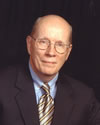CHINA'S ECONOMY AND CHINESE POLITICS
Paul Schroeder - Visiting Assistant Professor in the Department of Political Science at Case Western Reserve University
Friday February 20, 2009
12:30-1:30 p.m.
Crawford Hall - Room 9
Inamori Center
Case Western Reserve University
Dear Colleagues,
Conventional Wisdom says that the Chinese Government has had a deal with its people: if they accept the power structure, the government will help them get rich.
Logic then would suggest that, if the economy does not do so well, the government may become more vulnerable.
So what could be the political impact of the world financial crash?
That should depend on how the crash might affect the economy overall, on the groups that it affects differentially, on how stable the situation was before the crash, on how much the Communist Party regime has relied on economic growth for support, and on how much it depends on popular support as opposed to other sources of power.
For a quarter of a century Paul Schroeder, Visiting Assistant Professor of Political Science, has studied, worked in China, and worked with Chinese businesses and visiting delegations. He’ll lead off the weekly public affairs discussion with some observations from his experience and about recent developments, and then the we’ll move on to questions and discussion.
As usual, we will gather in Room 9 of the Inamori International Center for Ethics and Excellence, on the lower level of Crawford Hall, for free cookies, beverages, and brown bag lunch.
Best regards,
Joe White
*There will be no parking available in the visitors lot next to Crawford Hall this week due to a university trustees meeting.
About Our Guest
Dr. Paul Schroeder is someone whom some of our students already know, as he has taught one course per semester for the past two years. Paul brings a remarkable blend of experience and wisdom into the classroom. He earned his Ph.D. from Ohio State in Chinese Politics in 1987, doing his dissertation on regional power in the Chinese political system. Before embarking on his Ph.D. studies, however, he was a newspaper reporter covering police, city, county and state government for several Ohio newspapers. While doing his dissertation research, Paul represented the State of Ohio Department of Development in Wuhan, China. He then joined the staff of the National Committee on U.S. ― China relations in New York, managing programs in law and economics. From 1995 to 2007 Dr. Schroeder was managing director of East-West Trade Development, Ltd., a firm that assisted American businesses with international trade opportunities, especially with China.
In addition to his business and international relations experience, Paul has taken opportunities to teach a wide variety of courses over the years, including The United States and Asia and Politics and Development in the Global South with us. He is also co-founder of Families of the Fallen for Change, a lobby group advocating a political solution to the Iraq war, and as part of that has worked with senior members of Congress to help develop alternatives. So he brings to Case Western Reserve University experience in teaching, scholarship, working within China and within the foreign policy process of the United States.
Friday Lunch Upcoming Topics and Speakers:
February 27: The New (Maybe) Israeli Government. With Michael B. Oren, Senior Fellow, The Shalem Center, Jerusalem; and Peter J. Haas, Abba Hillel Silver Professor of Jewish Studies.
March 6: “Pirates!," Milena Sterio, Assistant Professor at Cleveland Marshall College of Law, and Gillian Weiss, Assistant Professor of History.
March 20: “How International Terrorism is Financed and What Can Be Done About It,” Richard Gordon, Associate Professor of Law.
March 27: Promise and Problems of Alternative Dispute Resolution. Bill Leatherberry, Professor of Law , CWRU.
April 3: TBA
April 10: Exonerating the Innocent: The Impact of DNA Evidence. Paul Gianelli, Weatherhead Professor of Law, CWRU.
April 17: CWRU Students Report on the Election in El Salvador.
April 24: TBA.
The Friday Lunch discussions are held on the lower (ground) level of
Crawford Hall. Visitors with mobility issues may find it easiest to take advantage of special arrangements we have made. On most Fridays, a few parking spaces in the V.I.P. lot in between Crawford Hall and Amasa Stone Chapel are held for participants in the lunch discussion.
Visitors then can avoid walking up the hill to the first floor of Crawford by entering the building on the ground level, through the garage area under the building. The further door on the left in that garage will be left unlocked during the period before the Friday lunch. On occasion, parking will be unavailable because of other university events.
For more information about these and other Center for Policy Studies programs,
please see http://policy.case.edu.


